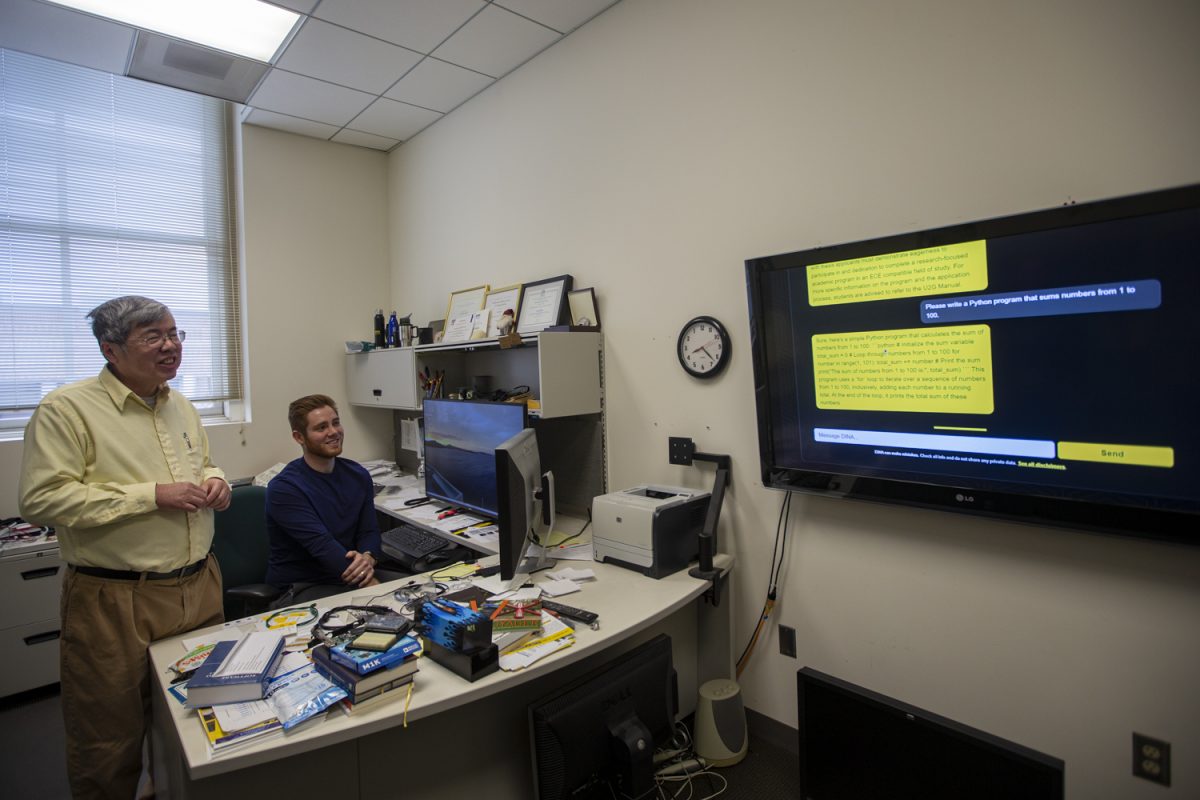Professors at the University of Iowa College of Engineering are embracing the use of artificial intelligence technology through the creation of a chatbot that can academically advise engineering students.
Assistant professor in the Department of Electrical and Computer Engineering Tyler Bell originally programmed the chatbot as a throwaway example for an assignment in one of his classes.
But UI College of Engineering professor Er-Wei Bai, who attended the lecture, ended up asking Bell to work on the programming for official use.
The program is called Departmental Intelligent Neural Advisor, or DINA, and launched for students on the department’s website on Feb. 3.
Dina Blanc, a former business manager in the Electrical and Computer Engineering department, is the inspiration for the AI chatbot’s name.
UI College of Engineering professor Gary Christensen, who supported the project, said Blanc always answered students’ questions about different courses or scheduling.
Bell also based the appearance of DINA’s virtual avatar on Blanc.
When Bell and Bai thanked Blanc for permitting them to use her name over email, she wrote, “I love it!!!. I am honored.”
The bot has access to ChatGPT-4 as well as all the information on the department’s website. DINA is designed to answer students’ questions about information already on the department’s website that may be otherwise difficult to find without a specialized search.
“This simplifies everything. You can get an answer to your question anywhere, anytime, even before bedtime working at home,” Bai said. “You don’t have to come [to the advising office].”
The program doesn’t access any personal data, but Bell said he may work with the UI to see if this could be a feature.
“An easy way to think about this is a smart search of the ECE website and a one-stop shop to ask a question,” Bell said.
As a faculty adviser himself, Bell said he always answers questions in meetings that students are capable of answering themselves and that DINA makes that search significantly simpler.
If advisers can spend less time answering questions and pointing at their computer screens, they can spend more time connecting with students and providing guidance for the bigger picture.
“The idea is that we don’t want to replace the adviser,” Bell said. “We want to make them better at their jobs and let them handle the questions that are actually challenging.”
Once the department works out any kinks they may find in the programming and see how students and faculty react to DINA, Bai, and Christensen said the advising bot could be expanded to other colleges at the UI and administrative areas, such as the admissions website.
RELATED: Tippie professors integrating ChatGPT into the classroom
“It’s a stepping stone for what we would like it to be in the future,” Christensen said. “Right now, it’s a very limited database, but we hope to expand it to actual course offerings and make it more useful.”
When the DINA chatbot is opened, there is a disclaimer on the page that reads, “DINA can make mistakes.” Bell said it is important to remember that AI doesn’t necessarily get everything right but that the programming can only get better.
“I don’t think these technologies are going anywhere,” Bell said. “When targeted like this and used responsibly, they can add a lot of value. So, this is not a bad place to start to try to see what that value looks like.”



